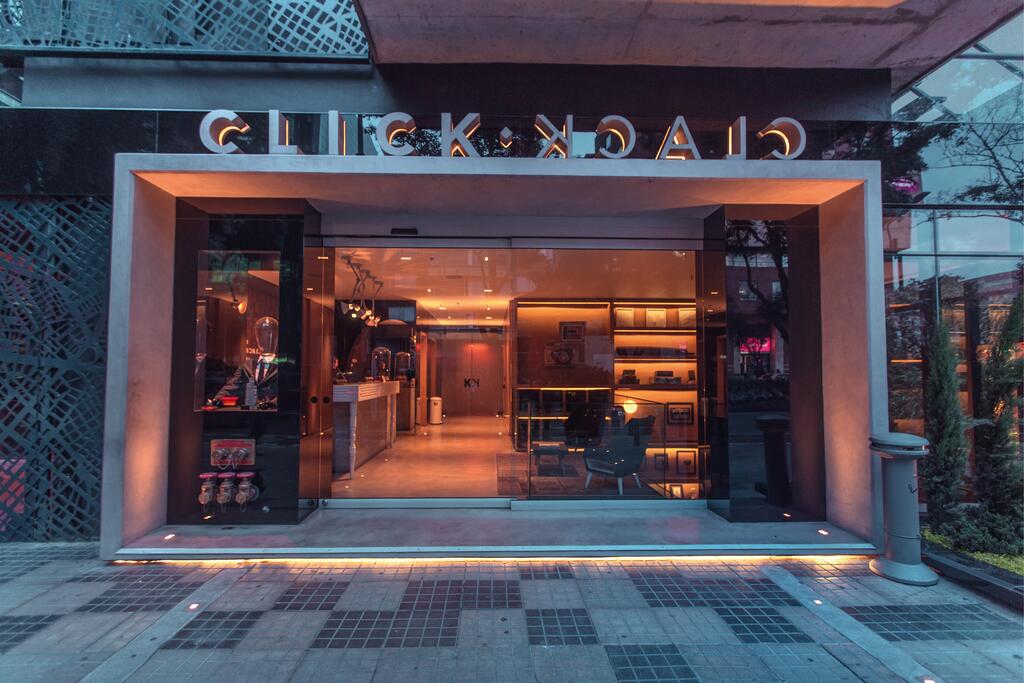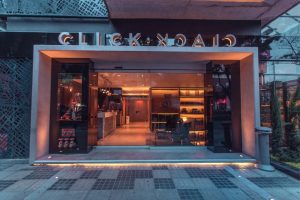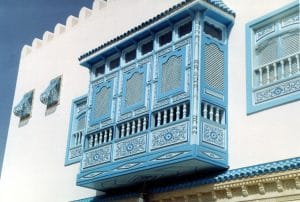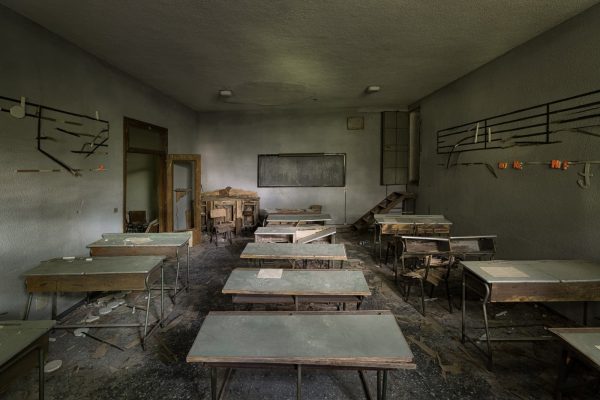#Culture
Day of the Dogs, Part 8: Rich and Poor
A security guard – a long-faced, muscular man – stared at him disconcertingly. Omar frowned. Why would the security staff be suspicious of him?
Published

See the Story Index for Wael Abdelgawad’s other stories.
This is chapter 6 in a multi-chapter novella. Chapters: Chapter 1 | Chapter 2 | Chapter 3 | Chapter 4 | Chapter 5 | Chapter 6 | Chapter 7
“Cold. Hard. You put it in drinks.” – Omar
A Small Price to Pay

Keep supporting MuslimMatters for the sake of Allah
Alhamdulillah, we're at over 850 supporters. Help us get to 900 supporters this month. All it takes is a small gift from a reader like you to keep us going, for just $2 / month.
The Prophet (SAW) has taught us the best of deeds are those that done consistently, even if they are small. Click here to support MuslimMatters with a monthly donation of $2 per month. Set it and collect blessings from Allah (swt) for the khayr you're supporting without thinking about it.
Miraflores Locks of the Panama Canal
After high school, Omar attended Florida State University’s Panama campus, on the northern edge of the city near the Miraflores Locks. From the library’s second floor you could watch the ships rising and falling in the canal. It reminded him of his childhood, when his mother used to take him to the locks, then to Avenida Central for a snowcone.
What would he say now if his mother wanted to do that? Not that she would. No longer a battered widow, she was now the CEO of a successful company, and had little free time. Omar lived on campus, and rarely saw her.
He encountered old friends, made new ones, and founded the karate club. After graduating with a B.S. in international affairs, he went to work for his mother’s company, which had forty five employees by that time. He started in shipping, and rotated to other entry level positions, as his mother wanted him to learn the day-to-day operations.
Word came that Nemesio had been imprisoned for murder. He’d lost his temper and killed a prostitute who tried to steal his wallet. Omar thought he should feel satisfied at this news, but he only felt sad for the man, which surprised him.
He fell in love and married an extraordinary woman. Fuad was a witness at his wedding. No one who knew Fuad from high school would have recognized him that day. Gone were the inch-thick glasses, replaced by contacts. His formerly shaggy hair was expensively cut, and his beard neatly trimmed, and he wore a beautiful blue suit that made him look like a Bollywood celebrity. He’d attended medical school in Cuba, then returned to Panama and joined a major medical group specializing in brain disorders.
Unfortunately, from Omar’s perspective, Fuad brought something back with him from Cuba: a beauty queen. He’d met and married the former Miss Cuba, of all things. Ivana was certainly beautiful, with flawless mahogany skin and flowing raven tresses that spilled over her shoulders; but she had the personality of a vampire bat. Greedy and materialistic, Omar watched helplessly as the woman pushed Fuad to spend money he did not have on luxuries he could not afford.
At one point during the wedding, Omar and his wife were seated together on an ornate bench as others came up to them one at a time or in pairs to congratulate them. When Fuad approached with Ivana, the beauty queen, instead of offering congratulations or well-wishes to the new couple, gushed, “Guess what? I am descended from Castilian royalty.” Fuad, looking mortified, cleared his throat. “I ran a genealogical DNA test to make sure she doesn’t have the marker for epilepsy. For our future children, inshaAllah.”
“The test,” Ivana enthused, “says I am a relative of the Spanish royal family.”
“A distant relative,” Fuad qualified. “Anyway, congratulations. May Allah make your marriage happy and fruitful.”
Watching them go, Omar shook his head. That woman was a live wire. He hoped Fuad knew what he was doing.
The other witness was Mahmood, a Palestinian brother Omar had met at Florida State, and who now taught history and English literature at IIAP, Omar’s old school. The Muhammad triplets were there as well, and even Mahboob came, as he and Omar had long since patched things up. Though Mahboob still joked that the only way they’d truly be even was if Omar went headfirst into a trashcan. To which Omar would reply, “Save that for the politicians,” or, “My name is Omar not Oscar,” and once, concocting an admittedly awful English-Spanish pun, “That would be an interesting sucio-logical experiment.”
Omar was eventually promoted to executive vice president of Puro Panameño. He bought a house, and his wife gave birth to a son. At some point, the nightmares that had plagued him after the dog attack stopped coming. He realized this only later, and could not pinpoint exactly when they had stopped, though he thought maybe the turning point had been his marriage.
He taught karate to kids at the Muslim community center, and ran three times a week at Parque Omar – something the doctors had told him he would never do again.
Fuad was always calling to complain about his psychotic wife. Okay, not psychotic, but Ivana wore a pound of gold to the grocery store, insulted Fuad in public, and had a vicious temper. Omar had once seen her lift an ice cream making machine over her head and throw it against a wall hard enough to crack the plaster. Aside from that, she spent Fuad’s money like it was her life’s purpose, and neither worked nor cared for the house. Spent all her time at the Coronado beach club, or out with her friends at night, doing nobody knew what. Though she had not converted to Islam, she’d promised to give up drinking when she married Fuad. But she would stumble home at 3 am so drunk she had to be carried to bed.
Fuad wanted Omar to talk to her, guide her, help her change. Omar tried one time to talk to Ivana about at least moderating the drinking, and she threw a table lamp at him. Omar suggested to Fuad that he and Ivana were simply not compatible.
But Fuad would have none of it. The woman had flawless dark skin, curves like a ripe peach, and a face that might have been molded by angels. Fuad could not give her up.
Not Omar’s problem, he decided.
Overall, life was good, and he was grateful. If his body was sometimes stiff in the morning, if the old wounds still ached when he ran or practiced karate – especially his left leg – so be it. It was a small price to pay for the life he lived. Alhamdulillah.
TEN YEARS AFTER HIGH SCHOOL GRADUATION

Now it was the morning of the second day of the conference, and as he approached the rotating doors at the building entrance, a security guard – a long-faced, muscular man – stared at him disconcertingly.
Omar frowned. He knew security was always a concern in Colombia, so it was not surprising that this event was staffed by a score of burly red-jacketed security guards. But why would they be suspicious of him? In his tan-colored bespoke Panama suit, light blue shirt and navy tie, he was just another businessman. Maybe the man wanted to search the leather laptop case he had slung over one shoulder?
The guard half-reached toward him with one meaty hand, pointed to the copper bracelet Omar still wore on his right wrist, and blurted, “Omar? Omar Bayano?”
Tipping his head, Omar studied the man. There was something familiar about that elongated face and nose. SubhanAllah! It was Hani. He would have walked right past him. Gone was the acne and the long, greasy hair. Hani was the same height he’d been in high school, but his complexion was a clear, burnished olive, and his hair was shorn to a crewcut and receding at the temples. His shoulders were huge, and he looked like he could lift a horse.
Omar knew that he too looked different. In tenth grade he’d been the shortest boy in his class; but now, at the age of twenty-eight, he was a relatively tall 182 cm. His formerly full head of curly hair was now just long enough to cover the tops of his ears, hiding his disfigurement. The scars on his face were faded, though you could still see the white lines if you stood close. Even his limp had disappeared.
Grinning widely, Omar stepped forward and embraced his old friend. He felt unaccountably excited, as if he’d just found someone he’d spent years searching for, even though the reality was that he’d thought of Hani only now and then in passing.
Hani gave a surprised laugh at Omar’s warm greeting, then beamed like he’d just won the Copa América. They exchanged numbers and arranged to meet that night.
Rich and Poor

Omar steered clear of the Jackson Pollock pollock – would it be chum on a plate? – and instead ordered the Fernando Botero cod, on the theory that even an unconventional place like this would not disrespect a revered Colombian artist like Fernando Botero.
Hani looked at the towering lobby fountain and plants literally growing on the wall, like a vertical garden. “You’ve come up in the world. I don’t know if I can afford to eat here.”
“Don’t worry about it. It’s on the company expense account.”
“Really? Who do you work for?”
“My mom’s company. Puro Panameño, remember? It’s grown.”
“Man. That’s great.” Hani kept shifting in his seat, picking up the menu and putting it down. It occurred to Omar that maybe Hani was uncomfortable having someone else pay for him.
“Hey, you know what?” Omar offered. “We don’t have to eat here. We could go for a pizza or something.”
Hani frowned. “Why? You don’t think I’m good enough for this place?”
Omar was taken aback. “I didn’t mean that at all. I want you to be comfortable.”
“Then don’t patronize me.”
Omar didn’t know what to say. The silence grew, until Hani blurted out, “Why are you being so nice? You’re acting like I’m your best friend.”
“Well… you were, once. You still are my friend.”
“I was mean to you. We used to call you Patacon because your father was a security guard.”
Omar heard the unspoken continuation of the sentence: And now I’m a security guard. How ironic life could be. Did Allah teach lessons on a decade-long scale? Why not? A decade, a century, a millennium, an age, these were nothing to The One with no beginning or end. But Omar had never held a grudge against Hani. He’d never felt the boy – now the man – had anything to atone for.
“That,” Omar said firmly, “was Tameem, not you.”
“I participated. Then I barely talked to you before we moved away, because I couldn’t face you.”
Clearly, Hani had never gotten over the way he’d behaved in high school. And now there was an obvious wealth gap between them. In Latin America that was a big deal. Rich and poor lived in different worlds. The power imbalance between the classes colored every interaction. People were supposed to “know their places.” Omar had to alter that balance, and he had to do it with something true, because you could never achieve an honest rapport with a lie.
Honesty Between Strangers
Omar ran a hand through his hair and chose his words. “I admit, I was hurt by the way you went along with the bullying. That was a terrible time for me. I felt like no one was on my side, no one was helping me. My father was gone, Nemesio used to beat me every day-”
“Who?”
“My so-called tio.”
“He beat you?”
“All the bruises, remember?”
“I thought that was from karate.”
Omar shook his head. “Mostly Nemesio. It went on for years. There were times when I contemplated suicide.” Omar had never said these things out loud to anyone, not even his wife. Why was he sharing them with a man he hadn’t seen in twelve years? Maybe because it was safe, in a way. Hani knew him but did not know him at the same time. A familiar stranger.
“Oh my God. I didn’t know, man. I’m so sorry.” Hani leaned forward impulsively and gripped Omar’s forearm, giving it a squeeze, then settled back into his seat.
Omar was moved by this. “You know, Hani, my most vivid memory of you is during the dog attack, when I saw you standing there with the knife. That little thing would barely cut a mango. You took a huge risk. The dogs could have turned on you.”
Hani shrugged, but Omar could see the words pleased him. “I did what I had to.”
“You could have done nothing.”
Hani shook his head. “You were my friend.”
Omar snapped his fingers and pointed. “Exactly. I could buy you a thousand dinners and it would be nothing. I’m breathing because of you.”
“You’re breathing because of Allah.”
“You were Allah’s instrument. But it must have been terrifying for you.”
“I peed my pants, actually.”
“For real?”
Hani nodded, and suddenly the two of them were laughing, and the tension was gone.
Nobody Uses Ice
They ate and talked. Omar told Hani about his family. His wife worked with him at Puro Panameño. She was his dream wife, and he was crazy about her. Their son Nur was four years old and a quiet child, but very smart ma-sha-Allah.
As for Hani, he’d gotten married nine years ago. Omar did the mental math. Hani had married at nineteen! He tried to ask about this, but Hani skirted the subject. Omar wondered if maybe Hani had an affair with a girl and was forced to marry her.
Hani’s father had early onset dementia, and his mother suffered from depression. His wife worked as a house cleaner. Life was a struggle. They wanted kids, but it hadn’t happened yet.
As it turned out, Omar was right about the Botero cod. The fish was served with a pear glaze, pea soup, a baguette and a watermelon slice. All items from Botero paintings, but grouped appealingly.
By ten o’clock the table had been cleared and Omar was tired. Hani kept brushing the tablecloth with his fingers. His high forehead was beaded with sweat. Omar flagged a waiter and asked for ice water for Hani.
The waiter stared at him blankly. “Ice?”
Omar made the shape of a square with his fingers. “Cold. Hard. You put it in drinks.”
Hani laughed and waved the water away. “Nobody uses ice in Bogotá, man. We’re at 2,700 meters. We’re cold enough already.”
The thought of living without ice boggled Omar’s mind. In Panama ice was like the blood in your veins. You couldn’t live without it. “It’s just,” he said, “you’re sweating.”
“Oh.” Hani mopped his brow with a napkin. “I want to ask you something.” He went on to say that his security guard salary barely paid a living wage. He was struggling to support his wife and parents, and always on the edge of being broke. He had an idea to start a security business of his own.
“I know I can succeed.” He’d balled the napkin in one hand and kept squeezing it as if trying to wring water from it. “I’ve been a guard for five years. I know everything about the business. But it takes financing. I was wondering if you could loan me the money. I hate to ask, but I don’t know where else to turn.”
Omar nodded slowly. For a split second he thought that maybe Hani had joined him for dinner only to make this request. But he brushed that thought aside. He should give his friend the benefit of the doubt.
He told Hani to write a business proposal. Projected income and expenses, how he intended to acquire clients in a highly competitive market, that kind of thing.
Hani frowned. “Why are you making me do all that, man?”
“It’s for your benefit. You need this kind of analysis if you want to succeed.”
“Fine. So should I email you all that?”
Hani didn’t sound happy, but Omar plowed ahead: “Why don’t you bring it in person? I would love to have you and your wife visit us in Panama. Let me know what date works for you and I’ll reserve the tickets.”
Gheerah
Later that night he sat on a towel laid on the floor of the hotel room, having just prayed Ishaa’, and thought about the encounter with Hani. It occurred to him that Hani had told him almost nothing about his wife, not even her name. That seemed odd, especially since Omar had told Hani everything about his own family. But some Muslim men – especially the Arabs – were secretive like that when it came to their wives. For a long time Omar had not understood this cultural trait, but he’d mentioned it once to Mahmood, his Palestinian friend.
Mahmood was knowledgeable in the deen and said that this type of protective behavior was called gheerah, and that it required a man to ensure that the women of his household wore hijab, did not mingle inappropriately with men, and were shielded from lustful gazes. Not to do this, Mahmood explained, was considered shameful in Arab culture.

Gheerah was not about distrusting women, Mahmood said, nor about punishing them. Rather it was about shielding them from those who harbored ill intentions.
In which case it seemed to Omar that it should be a two way street, with husbands and wives both protecting each other. Anyway that was probably the reason for Hani’s silence on the subject of his wife. Hani’s ancestry was Arab and he would have been brought up that way.
Omar stood, stretched, then set about packing his bags. He’d be returning home early in the morning, inshaAllah. He’d spoken to his wife and son on Skype earlier that day, before the dinner with Hani. He was glad the conference was over, not only because he was eager to see his family, but also because if it had not been over, he might run into Hani again. Yes, he’d invited the man to come visit him in Panama, but for some reason he felt uneasy at the idea of seeing him again. Why should that be?
The World School
The world was covered in an unending school building. For a few days he would travel through crumbling, abandoned classrooms and auditoriums, sleeping on the floor when he couldn’t walk anymore. He never knew if it was day or night, since windows and doors opened only onto more hallways and rooms. Once he came to a staircase and climbed it through twenty floors, until he came to a floor in which the ceiling had crumbled, and the sun shone through. The sun! He sat on the dust covered floor and bathed in the warm rays, astounded at how good it felt. Dust had accumulated on the floor until it became soil, and shrubs grew. It was a different world up here.
He tried traveling on the upper floors for a while after that, but some rooms were occupied by masses of birds or bats, and the structure was so heavily rotted and mildewed at that level that he feared he might fall through a hole in the floor. So he returned to the ground level.
Sometimes, as he journeyed through the unending, purgatorial building, he came to sections that were better maintained. Occasionally, class was in session. But when he looked into these rooms, the children were like automatons, staring blankly at a chalkboard on which words and numbers appeared by themselves. When Omar spoke, no one turned to look at him. He was not even sure they were human.
In some places, a stream or river ran through the school, and bridges crossed over it. Omar saw creatures in the water: chimeras with the fins of fish but the tentacles of octopi. Creatures that looked like small, pale children with the tails of dolphins; and immense crocodiles that drifted with the current, turning their unblinking eyes to watch Omar as they passed.
One night (if indeed it was night – in this area most of the lights did not work, and everything was shadows and gloom) he heard a familiar voice. He couldn’t put a name to it, but his heart sped up in excitement. Another human being! Someone he knew. The voice came from a dark classroom.
Omar rushed into the room, and found Mr. Suwaylem, his old principal from IIAP, lecturing to a dark and empty room.
He glanced at Omar. “You’re late. As I was saying, the Byzantine empire was a… was a sprawling, tremendously influential nation that could be said… Could be said what? I think, to have been… have been… founded in 330 CE, when Constantine the First…”
As Suwaylem stuttered on, Omar took a seat. He saw now that the man’s normally immaculate suit was dirty and torn, and hung loose on his frame, while his usually well coiffed hair was tangled.
“Who can tell me,” Suwaylem said, looking around as if to a room full of pupils, “something… what was it…” He wrung his hands helplessly, then looked to Omar. “You.”
Before Omar could point out that he didn’t know the question, a terrible moan came from the back of the room. It was a drawn out, tremulous sound, somewhere between a groan of pain and a death rattle, and it made the hair on Omar’s arms instantly stand on end. He spun in his seat and looked behind him.
In the deep shadows at the back of the room, two figures stood. Omar stared, trying to make them out. Finally their forms resolved, and he saw to his horror that they were Tameem and Basem, exactly as they had been in high school, except for one thing: they were dead. Or they should have been. Tameem’s throat was opened from ear to ear. His skin was alabaster pale, and blood stained his clothing down to his bare feet.
As for Basem, his head was half crushed, flattened on one side and broken open, so that his brains were visible.
It had been Tameem who moaned, because he opened his mouth and did it again. The sound sent a shudder all through Omar’s body. The boy was trying to speak, Omar realized. Trying to answer the principal’s non-question, maybe. But he could form no words, because his throat gaped open like a papaya with a wedge cut from it.
Tameem and Basem’s eyes fixed on Omar, and they both stepped forward, their expressions sorrowful and pleading. Omar tried to leap to his feet but the school desk seemed to have shrunk and his legs were stuck. He yelled in terror and panic. The two dead youths took another step forward.
* * *
He woke up shouting. He lay in a strange bed, his legs tangled in the sheets. Looking around in confusion, he realized where he was: the Click Clack Hotel. He was still in Bogotá. The glowing digital clock on the nightstand said 4:16 am. His alarm would go off in an hour. Three and a quarter hours until his flight.
He thought about the dream. He hadn’t had a nightmare in many years. Seeing Hani again must have brought back memories of the bad old days at IIAP, before the Day of the Dogs. Now he almost wished he could cancel the invitation he’d extended. But that wouldn’t be right.
He rose from bed. Time to shower and pray Fajr. Time to go home.
Next: Day of the Dogs, Chapter 9: All We Have to Do
Reader comments and constructive criticism are important to me, so please comment!
See the Story Index for Wael Abdelgawad’s other stories on this website.
Wael Abdelgawad’s novels – including Pieces of a Dream, The Repeaters and Zaid Karim Private Investigator – are available in ebook and print form on his author page at Amazon.com.
Keep supporting MuslimMatters for the sake of Allah
Alhamdulillah, we're at over 850 supporters. Help us get to 900 supporters this month. All it takes is a small gift from a reader like you to keep us going, for just $2 / month.
The Prophet (SAW) has taught us the best of deeds are those that done consistently, even if they are small. Click here to support MuslimMatters with a monthly donation of $2 per month. Set it and collect blessings from Allah (swt) for the khayr you're supporting without thinking about it.
Wael Abdelgawad's novels can be purchased at his author page at Amazon.com: Wael is an Egyptian-American living in California. He is the founder of several Islamic websites, including, Zawaj.com, IslamicAnswers.com and IslamicSunrays.com. He teaches martial arts, and loves Islamic books, science fiction, and ice cream. Learn more about him at WaelAbdelgawad.com. For a guide to all of Wael's online stories in chronological order, check out this handy Story Index.


Faith, Identity, And Resistance Among Black Muslim Students

Moonshot [Part 12] – November Evans

From The Prophets To Karbala: The Timeless Lessons Of Ashura For Muslims Today

Moonshot [Part 11] – The Fig Factory

Nationalism And Its Kurdish Discontents [Part II of II]: Kurds And Turkiye After Ottoman Rule

Moonshot [Part 11] – The Fig Factory

Moonshot [Part 12] – November Evans

Moonshot [Part 10] – The Marco Polo

Moonshot [Part 9] – A Religion For Real Life

Nationalism And Its Kurdish Discontents [Part II of II]: Kurds And Turkiye After Ottoman Rule

[Dhul Hijjah Series] Calling Upon the Divine: The Art of Du’a (Part 1)

IOK Ramadan 2025: Four Steps | Sh Zaid Khan

IOK Ramadan 2025: Do Your Best | Sh Zaid Khan

IOK Ramadan 2025: Giving Preference to Others | Sh Zaid Khan




Omar
November 6, 2020 at 10:24 AM
this was awesome! always great to see the ‘underdog’ finally start coming up in life mashAllah. curious what will happen with hani!
Wael Abdelgawad
November 6, 2020 at 2:55 PM
Thanks Omar. Yes, it’s good to see him growing into a confident young man.
Zahra
December 18, 2020 at 11:51 AM
Salaam brother.
Great story! I’ve been binging the chapters today even tho I have work 😂 Hani seems suspicious right now hmm.
Also brother I think you made a mistake in the part where Omar encountered the zombies in his dream. You wrote Hani’s name instead of Bassem at one place.
Wael Abdelgawad
December 18, 2020 at 3:29 PM
Oops, you were right about that mistake. I corrected it. Thanks!
I hope you don’t get fired from your job, haha.